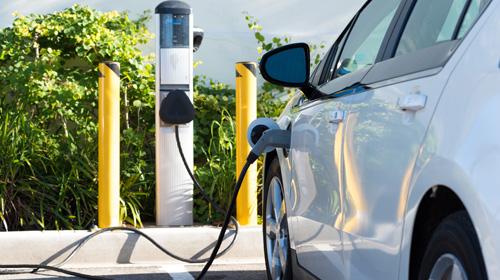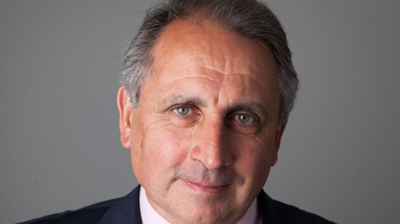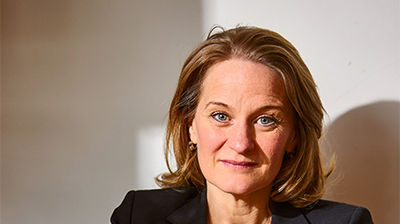
The House of Lords Environment and Climate Change Committee opened its inquiry yesterday into electric vehicles (EVs) and whether the government's 2030 ban on sales of new petrol and diesel car sales is realistic, with evidence given by industry trade bodies, car dealer suppliers and manufacturers.
With consumer confidence in electric cars slipping significantly, concerned industry experts have been applying pressure on the government.
ICE vehicle phase-out dates

Mike Hawes, chief executive of the SMMT told the inquiry that the government must provide greater clarity on the timetable for the phase-out of diesel and petrol cars by 2030-2035.
“The first thing the government can do is provide the clarity. We desperately need that clarity because of the investment that needs to take place. We don’t have the regulation.
“Clearly there is this proposal where we end the sale of conventional petrol and diesel in 2030 and all fossil-based fuels by 2035.
“That’s not in law. We do not know what we are allowed to sell between 2030 and 2035 and that has a direct impact on investments because you do not know, if you are putting a vehicle or production technology on the market, how long you have to sell that to get a return on your investment.”
Zero Emission Vehicles (ZEV) mandate
The government’s soon-to-be-enforced ZEV mandate will require manufacturers to sell a certain proportion of fully electric vehicles in the UK – 22% by 2024, 80% by 2030 and 100% by 2035.
Hawes suggested to the committee that the ZEV mandate was lagging behind good or smart regulation: “We have a consultation for a zero emission mandate. Now that mandate will come into force in 116 days.
“We do not have the regulation. We have had two consultations and we do not have the response to the consultations.
“Normally if you are defining good regulation, smart regulation you get a couple of years to plan.
“We sit here in early September and most brands have to fix their products and budgets and product allocations for next year and you cannot do that on the basis of consultation. You need to see the regulation because that tells you what you can and cannot sell.”
Barriers to entry into EV market
The potential barriers to entry into the EV market were also debated during yesterday’s opening session.

Auto Trader’s Marc Palmer said that while progress is being made in new EV sales, that development remains “fragile”.
Palmer expressed concerns to the committee that a large number of motorists are being ‘held back’ as a result of price concerns and changes to their lifestyle, highlighting that the transition to EVs is unequal: “Interest in electric vehicles and drivers of electric cars are in more affluent postcodes with driveways.
“80 to 85% of electric cars owned by private individuals are charged on driveways. Those people don’t quite have the same concerns.”
Palmer highlighted that: “There are three core groups being left behind by the transition: those over 55, women and people on lower incomes.
“And the core reasons they’re being left behind are around cost, which is a big barrier, perceptions around public charging infrastructure and around the changes required to lifestyle.’
It came as a survey of 4,000 motorists for the AutoTrader car sales website found that 56 per cent of drivers consider EVs too expensive and that only 47 per cent think it would fit in with their lifestyle.
When discussing the expense of owning an EV, SMMT’s Mike Hawes told the committee that the cost of insuring an EV has also soared by up to 60% this year: “Insurance has gone up significantly this year. Can we do something to incentivise or make it more affordable in terms of insurance?”
Hawes told the committee that with EV sales cooling off, better incentives were needed to help private motorists buy them.
Second-hand EV market
The inquiry also saw a panel of automotive industry experts discuss how used EVs will never achieve price parity with their petrol and diesel counterparts.

Phill Jones, Chief Operating Officer, Motors.co.uk claimed that used EV prices will “never be aligned completely” with more traditional powertrains, despite some models coming close to price parity in recent months as a result of falling used EV values.
Speaking at the Houses of Parliament, Jones called on the government to introduce more initiatives for motorists to buy a used EV, as opposed to a new one: “I think that there is a real world challenge that if you walked into a car dealership to buy a two-year-old used electric vehicle you might find that actually it’s cheaper to buy the new one.
“The used one won’t have an incentive on it in terms of finance. You will also have the anxiety that the brand new one is a newer model and technology is improving.”
When asked what can be done to help stimulate the used car market, Jones said: “There is good in terms of downward pressure being stimulated by the manufacturers – like the price cuts that Tesla put through.
“Manufacturers are making more EVs and that is driving the price down and that is flowing down to the used market.
“The gap is reducing but there are other things that we can do in terms of the VAT on those used cars and the incentives potentially for home charging points.
“I think most people expect it to be headline price slightly higher but it’s really hard to do that maths on the overall costs to our lifestyles.
“I think that prices will never be aligned completely but I do think that gap should be one or two thousand pounds and certainly as cars get older you should see that.”
Electrification of the fleet industry
Charging ahead on the road to electrification, the fleet industry have been supported by major incentives for the adoption of electric company cars.

However, addressing the committee yesterday, Toby Poston, director of corporate affairs at the BVRLA explained that the degree to which fleets were currently dominating the sale of new EVs appeared unsustainable.
"We have got the fleet sector, where if I look at the company-provided vehicle sector, you have got uptake of around 50% - even 90% in some areas - but if you contrast that with the retail part of the new car and used car market you have got much lower levels of uptake. For retail it's more like 10%, and if you look at used vehicles it's in single figures.
"That imbalance is a real worry for me going forward. That is not a healthy, or potentially even a sustainable transition in the long term if you've got that imbalance within it, because the whole industry works in quite a joined-up way."
Poston sees the imbalance in demand being reflected in falling used EV values: "I think the last year has been like watching a slow potential car crash happen. I think we've seen on average 20-25% falling value of used EVs. That is from a high position, but if that carries on, and these fleets have been investing billions in hundreds of thousands of electric cars, those vehicles are going to hit the market in sort of three to four years' time.
"If that slump continues, they have got to be a lot more cautious in how they set their new prices for lease rates.
"On the one hand you could say cheap used cars, cheaper EVs for used buyers is good. That benefit will only really be there for a while because eventually it will just create a big surge in the cost of new leased EVs, and the vast majority of EVs are leased, and that's just going to make them unaffordable and damage the transition."
According to Poston, the fleet industry is itself taking some action to address the issue: "We are seeing our members trying to act. We are seeing growth in terms of used vehicle leasing, used vehicle subscriptions, because used EVs are much more reliable and cheaper to maintain than ICE vehicles.
"Leasing companies are seeing it as a potential fix to offer them for a second lease, so if you lease it for three years, instead of putting it in the used market you can lease it for a further three years, and you haven't got to put it into the risk of an auction where prices are just sort of plummeting.
"But I think the key here is just the incentives. You've got the fleet market at the moment that is on steroids with really powerful tax incentive, and the retail new and used market has nothing."
Inquiry
Evidence was given at yesterday’s inquiry by car dealer suppliers, manufacturer bosses and trade bodies, including: Marc Palmer, Brand Director, Autotrader; Phill Jones, Chief Operating Officer, Motors.co.uk; Toby Poston, Director of Corporate Affairs, BVRLA; James Taylor, Managing Director, Vauxhall Motors; Professor Tim Schwanen, Director of the Transport Studies Unit, University of Oxford; Lauren Pamma, Programme Director, Green Finance Institute; and Mike Hawes, Chief Executive, Society of Motor Manufacturers and Traders (SMMT).
The committee covered topics including petrol and diesel vehicle phase-out dates, Zero Emission Vehicles (ZEV) mandate, factors limiting EV uptake in the UK, gaps and challenges in the current EV market, second-hand EV market, vehicle leasing, and alternative ownership and transport models.






